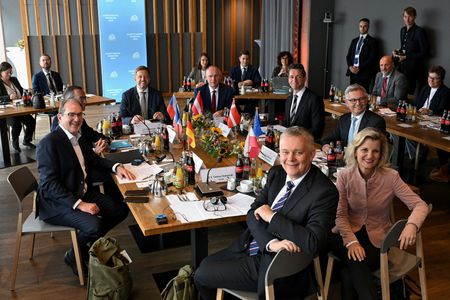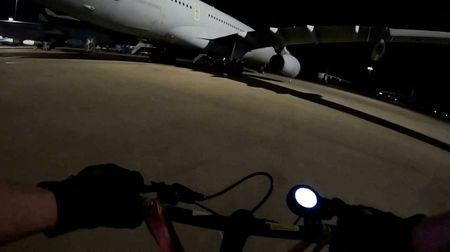By Jörn Poltz and Riham Alkousaa
ZUGSPITZE, Germany (Reuters) -Germany’s Interior Minister Alexander Dobrindt and five European counterparts agreed on a set of goals on Friday to tighten asylum rules in the bloc, including allowing deportations to Afghanistan and Syria.
The meeting at Germany’s highest peak, the Zugspitze, follows Berlin’s decision in May to reject asylum seekers at the border, a policy it said was coordinated with neighbouring countries but drew significant criticism.
It comes almost exactly a decade after former German Chancellor Angela Merkel opened the country’s borders to nearly a million refugees fleeing war and persecution, a landmark decision that reshaped European politics.
Dobrindt met counterparts from France, Poland, Austria, the Czech Republic and Denmark, as well as EU Home Affairs Commissioner Magnus Brunner.
The agreed asylum policy goals, which require approval from Brussels, include removing legislative obstacles to transferring rejected asylum seekers to secure centres outside the EU and enabling asylum procedures in third countries.
Germany’s new government has already placed curbs on migration including suspending family reunification and resettlement programmes, as it seeks to regain support from voters drawn to the far-right Alternative for Germany, which made historic gains in February’s federal election. On Friday Germany deported 81 Afghan men to Afghanistan.
“We are all concerned that the overburdening of our countries by illegal migration is also contributing massively to the polarization of society. We want to push back this polarization,” Dobrindt said.
Deportations to countries such as Afghanistan and Syria should be reinstated as standard practice, with citizens from countries failing to cooperate on deportations to face visa restrictions, a joint declaration said.
Trade, and development aid will also be used as leverage to boost returns and strengthen migration cooperation, the document said, pressing for increasing deployment of drones and more EU funding for border infrastructure and personnel.
The countries agreed to combat smugglers and work to dismantle human trafficking networks.
Asylum seekers who have already been granted protection in another EU country will be quickly rejected if they claim asylum elsewhere in the bloc.
“Once we seal the external border, there will be no need for internal border controls,” Polish Interior Minister Tomasz Siemoniak said.
Siemoniak said he discussed the border controls Germany introduced unilaterally at its border with Dobrindt, adding that Poland is ready to waive the controls at its border once Germany does the same.
(Reporting by Joern Poltz and Riham Alkousaa, additional reporting by Barbara Erling in Warsaw, Editing by Friederike Heine)










